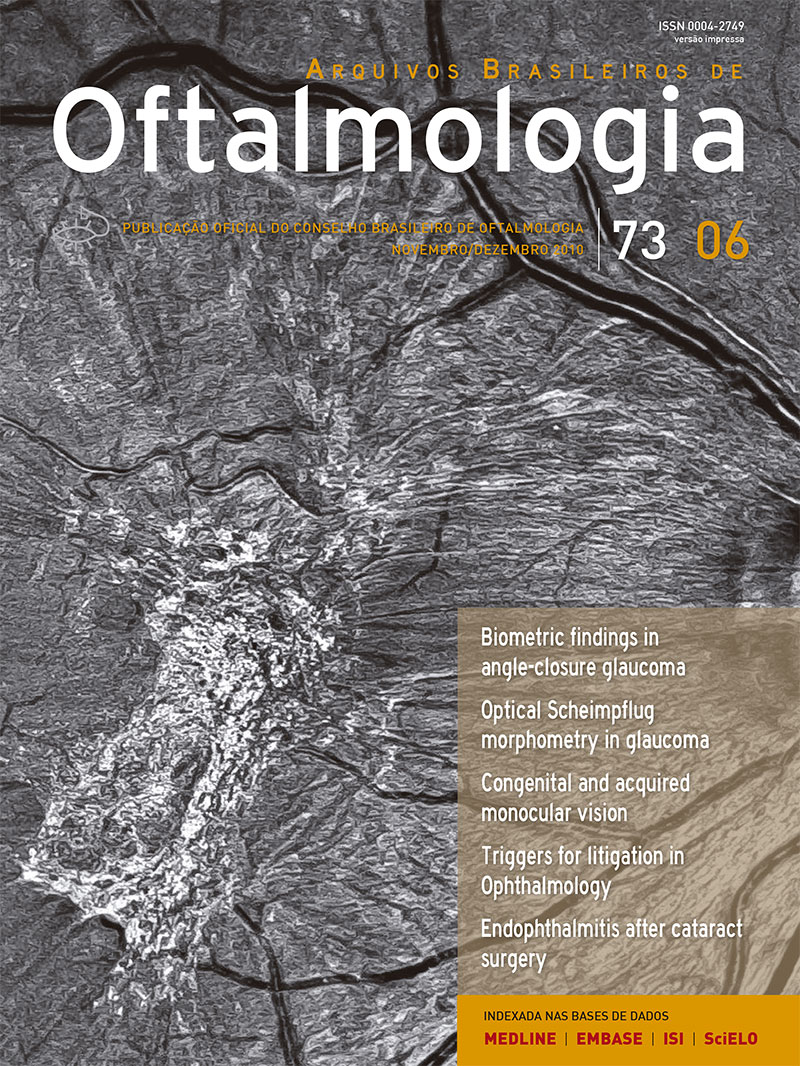Purpose: To analyze the possible predisposing factors of lawsuits involving ophthalmologists. Methods: Retrospective study of 70 lawsuits involving the practice of Ophthalmology. The patient's gender, age, medical and ophthalmic history were reviewed. The eye disorder that generated the prosecution, the pre-existing ophthalmic diagnosis, the preoperative exams and the operating room data were also analyzed. The informed consent form, the outcome of the litigation and the value of compensation were recorded. Results: Blindness was reported in 45 (64.3%) of the 70 lawsuits and was the principal eye disorder related to litigation. The pre-existing eye diseases associated with legal claims were: cataracts in 46 (65.7%) lawsuits, refractive errors in 12 (17.1%), ocular trauma in 8 (11.4%), glaucoma in 3 (4.3%) and retinal detachment in 1 (1.4%) lawsuit. The major surgical complications that possibly motivated the patient to sue the ophthalmologist were retinal detachment in 37 (52.8%) lawsuits, poor visual acuity after cataract surgery in 12 (17.1%), corneal disorders following refractive surgery in 8 (11.4%), endophthalmitis in 4 (5.7%), discomfort with refractive prescriptions in 4 (5.7%) and ocular atrophy in 4 (5.7%) lawsuits. Ophthalmic surgery was involved in 94.3% of the 70 prosecutions analyzed. Two or less visits to the ophthalmologist preceding the surgical or refractive event leading to legal dispute were recorded in 67.1% of the lawsuits. A pre-surgical Informed consent form was not used in 63% of the 66 surgical procedures leading to litigation. 62.9% of the lawsuits were unfavorable to the Ophthalmologist and the amount of compensation was less than R$ 50,000 in 72.7% of these legal claims. Conclusions: Blindness, surgery, retinal detachment, few pre-operative ophthalmic visits and the lack of informed consent forms were possible risk factors associated with lawsuits in the field of Ophthalmology.
Keywords: Malpractice; Informed consent; Ophthalmology; Liability, legal; Refractive surgical procedures
